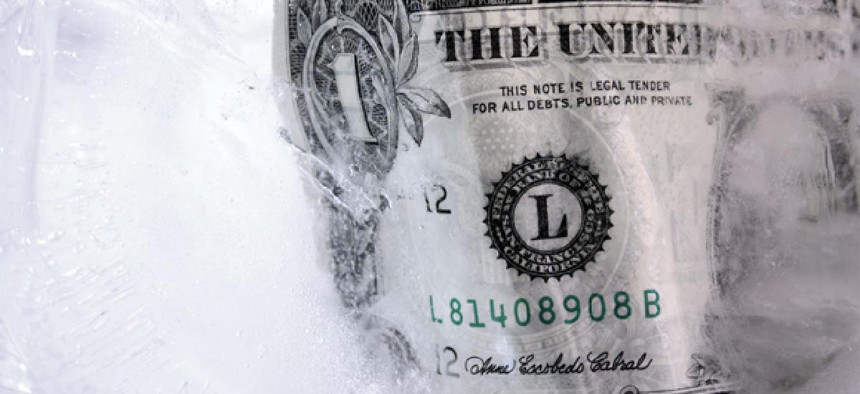
imageZebra/Shutterstock.com
Fed groups blast latest attempt to extend pay freeze
Government employee advocates say ‘enough is enough,’ and urge lawmakers to oppose bill in next week’s vote.
Federal employee groups are urging House lawmakers to oppose the latest attempt to extend the pay freeze on civilian government workers through the end of the year.
The House will vote next week on H.R. 273, which would prevent feds from receiving a 0.5 percent pay raise after the current continuing resolution expires on March 27. The National Active and Retired Federal Employees Association and the National Treasury Employees Union have sent lawmakers letters arguing that government employees have already sacrificed in the name of deficit reduction and blasting some members of Congress for continuing to target federal workers.
“This bill is nothing more than another direct attack on hardworking public servants,” said NARFE President Joseph A. Beaudoin, in a Jan. 18 letter to representatives. “Instead of pushing political messaging bills, Congress should focus on the real issues lawmakers need to address in the next two months, including sequestration, the debt limit and the expiring continuing resolution.”
Beaudoin criticized some members’ reliance on a 2012 report from the nonpartisan Congressional Budget Office, which concluded that federal workers on average earn more than their private-sector counterparts. The study controlled for various factors, including occupation, education and work experience; despite its overall conclusion, CBO did find that most highly educated feds earn less than their private-sector counterparts.
“But even if you assume that federal employees are overpaid on average -- an incorrect assumption -- it does not follow that all federal employees are overpaid,” Beaudoin wrote.
NTEU President Colleen Kelley said federal employees have continued to provide vital services to the public, despite living with a two-year-plus pay freeze, the constant threat of government shutdowns and limited resources. “It is past time to allow them the tiny pay raise this bill would eliminate,” she wrote in a Jan. 17 letter to lawmakers.
Both Beaudoin and Kelley said government workers have already contributed $103 billion to deficit reduction over the next decade as a result of the pay freeze and the smaller pay increase for 2013 that President Obama wants for employees. Based on the Employment Cost Index, federal pay scales should have increased by 1.7 percent in January. Beaudoin also cited feds’ contribution of $15 billion from the 2.3 percent increase in retirement contributions that new hires must pay.
“Enough is enough,” Beaudoin said. “It is time Congress found other ways to reduce the deficit then to continually take from those who dedicate their lives to public service.”
The bill to extend the pay freeze, introduced by Rep. Ron DeSantis, R-Fla., also applies to lawmakers, but Congress already voted to freeze its pay in 2013 in the fiscal cliff legislation signed into law earlier this month.
The Congressional Budget Office estimated that denying feds a pay increase would save $11 billion in 2013.
DeSantis’ legislation has 28 co-sponsors. House Majority Leader Eric Cantor, R-Va., sent out a statement Wednesday about next week’s vote on the bill and also tweeted about it. The legislation comes just two weeks after the House passed a similar bill during the last days of the 112th Congress. The Senate did not take up that legislation, and so lawmakers had to reintroduce a new bill in the 113th Congress, which began on Jan. 3.
If the House votes to extend the pay freeze next week, it faces an uncertain future in the Democratic-controlled Senate. Previous House-passed bills that would have extended the two-year pay freeze past 2012 have gone nowhere in the Senate.
(Image via imageZebra/Shutterstock.com)
NEXT STORY: A Little Extra Under FERS







